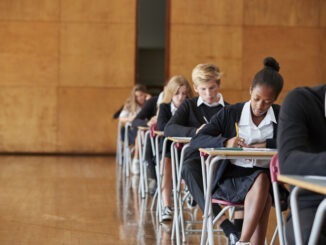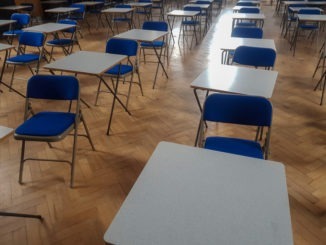
As reported by BBC news, teachers’ grades could be biased towards students with more “agreeable” personalities – rather than actual ability, claim psychologists
An international study found a 10% advantage in teachers’ grades for those seen as being likeable, compared with results in anonymous exams. University researchers warned students should not be “penalised” because of negative expectations about them. Teachers’ grades will be used this year for cancelled exams across the UK.
The international psychology study looked at how personality could influence perceptions of ability. It did not draw on the replacement exam systems being used in the UK, but head teachers’ leader Geoff Barton rejected the idea of teachers being unfairly swayed.
“Teachers are highly trained professionals who are well aware of the importance of assessing all their students fairly and without any form of favouritism or bias,” he said.
The psychology study, from researchers at Queen’s University Belfast and Goldsmiths, University of London, analysed how the personalities of students compared with grades awarded by teachers and then their written exam results. It was based on a sample of 1,200 students in Russia, whose psychological profiles had been mapped against their academic record.
It found that those with personality traits seen as more positive – such as more sociable, well-behaved and “agreeable” – received a boost in teachers’ grades, which were not then borne out by performance in anonymous exams. Teachers also seemed to be more sympathetic in grading towards students who were stressed or anxious, showing more “leniency” in grades for those seen as more “emotionally fragile”. This pattern worked against those who were perceived as having more negative, anti-social or annoying traits.
“It seems teachers awarded higher grades to pupils who were more agreeable and marked them down if they were less likeable,” said Kostas Papageorgiou from Queen’s University Belfast.
“But we shouldn’t penalise students for these characteristics,” said Dr Papageorgiou.
The study, also involving academics in Russia and Italy, found no clear pattern between personality types and actual performance in exams.
But the evidence suggested “teacher ratings might reflect some conscious or unconscious biases”, said the psychologist Dr Papageorgiou.
This is a higher profile issue in the UK this summer – with teachers’ grades playing an important part, along with other assessments, in deciding results for exams cancelled by the pandemic.
The findings, although based on a sample of 14 to 18 year olds in Russia, have a relevance in all education systems, says Dr Papageorgiou.
“Bias is universal, it’s part of all of us,” warned Dr Papageorgiou. “I don’t see any reason why this sort of bias wouldn’t apply here.”
The study did not look at bias in terms of gender or ethnicity, but researchers said the findings revealed how much perceptions of academic ability could be influenced by other factors, in this case students’ personalities. Dr Papageorgiou says that a variation of 10% in grading might not seem high, but it could mean a significant difference in an academic setting. He said it showed that “bias can operate on many levels”.
But the psychologist said that: “Marking exams blindly and having a moderation system in place will definitely reduce the negative impact of this bias.”
Barton, leader of the ASCL head teachers’ union, said teachers’ professionalism would prevent favouritism and measures were in place to ensure fairness in this year’s results.
“They are following detailed guidance from the exam boards and the exam regulator Ofqual, and schools and colleges are operating quality assurance processes to ensure fairness and consistency.
“Teachers and leaders are working incredibly hard to carry out these assessments following the government’s decision to cancel public exams this summer.
“They are utterly committed to making sure that their students receive fair and accurate grades in GCSEs, A-levels and other important qualifications,” said the heads’ leader.



Be the first to comment